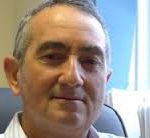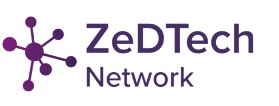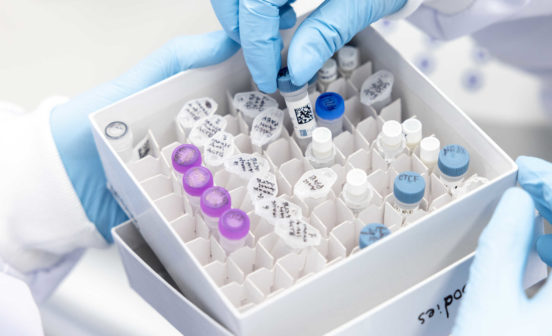This theme has two broad research streams, focusing on dementia care and on mental health. More specifically, our investigators intend to explore new approaches to early diagnosis, monitoring and treatment for:
- People living with dementia
- Children and young people with emotional and behavioural dysregulation.
Why this Research is Needed
New approaches to early diagnosis, monitoring and treatment of cognitive and mental health issues in neurological and psychiatric disorders are urgently needed. In particular new approaches are necessary to deliver at the scale demanded. Delivering this care is especially difficult in our London catchment area because of high rates of co-morbidity, social deprivation and social inequalities. We will develop new approaches in two underserved populations in this area: the old and the young with a dual focus on late-life cognitive impairment and on emotional and behavioural dysregulation seen across psychiatric disorders in young people. This approach is likely to deliver a substantial impact as around 25% of NHS beds are currently occupied by patients living with dementia and by 2040 those affected by dementia will increase to around 1.6 million in the UK. In addition, mental illness is experienced by one in four people in the UK during their lifetime, with particular risks seen during adolescence.
Theme Aims
- Develop new ways to proactively manage health and social care needs for people living with dementia via novel engineering and technology approaches to dementia care.
- Develop new methods to identify and monitor those at risk of and with dementia via digital tools for remote precision assessment of behaviour, cognition and mental health.
- Develop novel bioelectronic medicine approaches to treating cognitive impairment and dementia (such as non-invasive brain stimulation).
- Improve clinical outcomes in children and young people with emotional and behavioural dysregulation.
- Investigate the potential of treating psychiatric disorders with psychedelics and characterize addiction neurobiology (substance, gambling) and obesity for a personalised medicine treatment approach.
- Develop and deploy the computational infrastructure for analysing large-scale clinical data and pilot digitally enhanced clinical decision-making.
- Extend a real-world test bed designed to support the efficient evaluation of new approaches to health and social care.
Detailed objectives can be found here
Upcoming /Ongoing Projects within the Theme
- We are evaluating novel engineering and technology approaches to dementia care, using the home monitoring platform Minder. Professor David Sharp’s team are testing smart sensors that can collect data about a person’s behavioural patterns in the home by using artificial intelligence to make predictions about what that person might do. They will use this information to develop ways to support them in their home as their dementia progresses.
- Dr Martina Di Simplicio’s team is investigating the effectiveness of a new intervention called the IMAGINATOR to diagnose and treat self-harm in young people. IMAGINATOR trains people to develop and use more positive behaviours as an alternative to self-harm when dealing with distressing emotions. They are also testing a novel and specially designed app to help reduce symptoms which can be used after the therapy has finished.
Patient and Public Involvement, Engagement and Participation
We aim to reduce the current inequalities of access of our most deprived communities to involvement in research. We will do this by appointing community partners who have strong relationships with local communities in North West London. We are working with the Imperial Patient Experience Research Centre (PERC) to promote involvement and participation in research from underrepresented communities, particularly in collaboration with the two associated mental health trusts, West London NHS Trust and Central and North West London NHS Foundation Trust. We will provide PPIEP training for the researchers in the Theme and the community partners who have an interest in working with us. We are working on building our Strategic PPIEP Steering Group which will attend our Theme management meetings to report on progress against our PPIE Strategy and ensure PPIEP is addressed in governance.
In addition, in collaboration with the Helix Centre, the UK Dementia Research Institute Care Research and Technology Centre team we have nominated Minder Champions, a group of both carers and people living with dementia who regularly participate in PPIEP activities to help co-design and understand the acceptability of the new technologies developed by the centre to support people living with dementia and their carers.
Equality, Diversity and Inclusion
In our Theme, we seek to improve equality, diversity and inclusion (EDI) in all aspects of our work. We will work closely with the BRC EDI oversight committee to adhere to the BRC EDI strategy and apply the EDI principles to our recruitment, hiring, and retention practices as well as our community engagement practices. One way we intend to demonstrate improvements towards EDI principles will be by recording and monitoring recruitment metrics of the new members joining our teams and of those who apply and are awarded funding to deliver our research objectives. Also, during the selection process of our community partners, we have taken into account different ethnic groups and other demographics representative of the wider community to ensure that the views of the diverse local community in the West London area are represented in our research work. We also seek to support young emerging researchers in our Theme and create equitable opportunities for future leaders in various research fields.
Publications
Jacob D. King et al. The association of severe COVID anxiety with poor social functioning, quality of life, and protective behaviours among adults in United Kingdom: a cross-sectional study. BMC Psychiatry volume 23: 117 (2023). DOI https://doi.org/10.1186/s12888-023-04595-1
Meg J. Spriggs et al. Study Protocol for “Psilocybin as a Treatment for Anorexia Nervosa: A Pilot Study”. Front. Psychiatry, Vol 12 – 2021. DOI : https://doi.org/10.3389/fpsyt.2021.735523
Robin Carhart-Harris et al. Trial of Psilocybin versus Escitalopram for Depression. N Engl J Med. 2021 Apr 15;384(15):1402-1411. DOI: 10.1056/NEJMoa2032994.
Our Community Partners
In accordance with the Imperial BRC’s PPIEP Strategy , our theme has recruited a group of Community Partners to act as critical friends to our theme and share their valuable lived experience with our researchers and health professionals to help improve the relevance and quality of our research for the benefit of our North West London population.
Siobhán McGrath: I spent my life working both on a voluntary basis and professionally with vulnerable adult and older people with learning/ physical disabilities, addiction issues and mental health issues including dementia.
Key Individuals
-
Professor Anne Lingford-Hughes
Chair in Addiction Biology -
Professor David Sharp
Professor of Neurology -
Dr Aldo Faisal
Senior Lecturer in Neurotechnology -
Dr Barry Seemungal
Consultant Neurologist -
Dr Claudia Clopath
Lecturer -
Dr David Erritzoe
Clinical Senior Lecturer in Psychiatry -
Dr David Owen
Clinical Senior Lecturer in Clinical Pharmacology -
Dr Enrico Petretto
Senior Lecturer -
Dr Kevin O'Neill
Consultant Neurosurgeon -
Dr Lucia Li
NIHR Clinical Lecturer (Neurology) -
Dr Martina Di Simplicio
Clinical Senior Lecturer in Psychiatry -
Dr Paolo Muraro
Clinical Reader in Neuroimmunology -
Dr Paresh Malhotra
Clinical Senior Lecturer / Consultant Neurologist -
Dr Paul Bentley
Senior Clinical Research Fellow & Consultant Neurologist -
Dr Paul Edison
Clinical Senior Lecturer -
Dr Richard Nicholas
Consultant Neurologist -
Dr Richard Perry
Consultant neurologist -
Dr Tony Goldstone
Reader in PsychoNeuroEndocrinology -
Professor Dasha Nicholls
Professor of Child and Adolescent Psychiatrist -
Professor David Brooks
Hartnett Professor of Neurology -
Professor David Dexter
Professor of Neuropharmacology -
Professor David Nutt
Edmond J Safra Chair in Neuropsychopharmacology -
Professor Denis Azzopardi
Visiting Researcher -
Professor Etienne Burdet
Professor of Human Robotics -
Professor Michael Johnson
Professor of Neurology and Genomic Medicine -
Professor Paola Piccini
Professor of Neurology -
Professor Paul Matthews
Edmond and Lily Safra Chair, Head of Department -
Professor Richard Festenstein
Clinical Professor of Molecular Medicine -
Professor Richard Reynolds
Professor of Cellular Neurobiology -
Professor Roger Gunn
Professor of Molecular Neuroimaging -
Professor Roland Veltkamp
Professor of Neurology/Chair of Stroke Medicine/Consultant -
Professor Simone Di Giovanni
Chair in Restorative Neuroscience







































